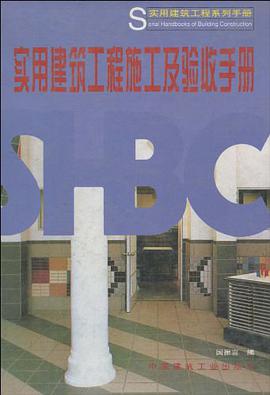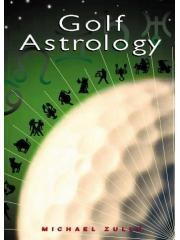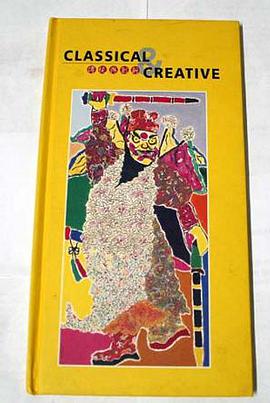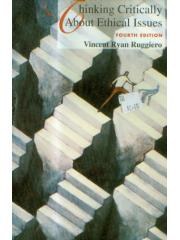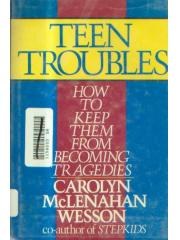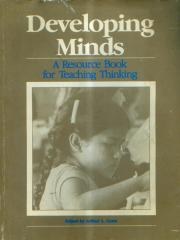

具体描述
<div> Nothing worse could happen to one than to be corn</div>
<p><br />
</p>
<div>pletely understood.</div>
<p><br />
</p>
<div>--Carl Jung</div>
<p><br />
</p>
<div> for human movement to be per-</div>
<p><br />
</p>
<div>, style, and grace. It takes years of</div>
<p><br />
</p>
<div>on, and coaching to become a</div>
<p><br />
</p>
<div> skilled gymnast or ice skater, for instance. Improvement is</div>
<p><br />
</p>
<div> demonstrated by the increasing mastery of complex and in-</div>
<p><br />
</p>
<div> tricate maneuvers performed repeatedly on command with</div>
<p><br />
</p>
<div> sustained and seemingly effortless grace. The distinction</div>
<p><br />
</p>
<div> between awkwardness and agility is obvious to even the</div>
<p><br />
</p>
<div> most undisciplined observer.</div>
<p><br />
</p>
<div> Like strenuous movement, thinking is hard work. Sim-</div>
<p><br />
</p>
<div> ilarly, we can assume that with proper instruction, human</div>
<p><br />
</p>
<div>thought processes can become more broadly applied, more</div>
<p><br />
</p>
<div>spontaneously generated, more precisely focused, more in-</div>
<p><br />
</p>
<div>tricately complex, more metaphorically abstract, and more</div>
<p><br />
</p>
<div> insightfully divergent. Such refinement also requires prac-</div>
<p><br />
</p>
<div>tice, concentration, and coaching. Unlike athletics, however,</div>
<p><br />
</p>
<div>thinking is most often idiosyncratic and covert. Definitions</div>
<p><br />
</p>
<div>of thought processes, strategies for their development, and</div>
<p><br />
</p>
<div>assessment of the stamina required for their increased</div>
<p><br />
</p>
<div>mastery are therefore illusive. Awkwardness and agility</div>
<p><br />
</p>
<div>are not as easily distinguished in thinking as they are in</div>
<p><br />
</p>
<div>athletics.</div>
<p><br />
</p>
<div> Today there is a growing realization worldwide, by ed-</div>
<p><br />
</p>
<div>ucators as well as the general public, that the level of a</div>
<p><br />
</p>
<div>country's development depends on the level of intellectual</div>
<p><br />
</p>
<div>development of its people. Indeed, Luis Alberto Machado</div>
<p><br />
</p>
<div>(1980), the former Venezuelan Minister of Intellectual De-</div>
<p><br />
</p>
<div>velopment, reminds us that all</div>
<p><br />
</p>
<div>right to the full development</div>
<p><br />
</p>
<div>human beings have a basic</div>
<p><br />
</p>
<div>of their intellect. Further-</div>
<p><br />
</p>
<div> more, recent research in education, psychology, and neu-</div>
<p><br />
</p>
<div> robiology supports the belief of many educators that the in-</div>
<p><br />
</p>
<div> creasing interest in teaching thinking is not just a backlash</div>
<p><br />
</p>
<div> from the "back to basics" movement. Rather, it is an integral</div>
<p><br />
</p>
<div> component of instruction in every school subject, and</div>
<p><br />
</p>
<div> achievement depends largely on the inclusion of those</div>
<p><br />
</p>
<div>mental processes prerequisite to mastery of that subject.</div>
<p><br />
</p>
<div> Just as the "Age of Aquarius" left its mark on education</div>
<p><br />
</p>
<div>in the 1970s by vindicating affect as an essential considera-</div>
<p><br />
</p>
<div>tion of learning, the greatest contribution of today's "Infor-</div>
<p><br />
</p>
<div>mation Age" may well be the inclusion of intellectualpro-</div>
<p><br />
</p>
<div>cesses as essential to all learning.</div>
<p><br />
</p>
<div> This resource book is dedicated to educators who be-</div>
<p><br />
</p>
<div>lieve that teaching is one of the most powerful mechanisms</div>
<p><br />
</p>
<div>for developing intellectual prowess; that meaningful inter-</div>
<p><br />
</p>
<div>action with adults, peers, and the environment is essential</div>
<p><br />
</p>
<div>in mediating the learner's intellectual development; that</div>
<p><br />
</p>
<div>learning is a continual transformation of inner perceptions,</div>
<p><br />
</p>
<div>knowledge, and experiences; and that all human beings</div>
<p><br />
</p>
<div>have the potential to continually develop their intellectual</div>
<p><br />
</p>
<div>powers throughout their lives. It is intended to help educa-</div>
<p><br />
</p>
<div>tional leaders--teachers, administrators, curriculum work-</div>
<p><br />
</p>
<div>ers, staff developers, and teacher educators--infuse curric-</div>
<p><br />
</p>
<div>ulum, instruction, and school organization with practices</div>
<p><br />
</p>
<div>that more fully develop children's intellectual potentials.</div>
<p><br />
</p>
<div> Because the research in and development of cognitive</div>
<p><br />
</p>
<div>education programs are progressing rapidly, this book is</div>
<p><br />
</p>
<div>not intended to be complete. Rather, it is intended to serve</div>
<p><br />
</p>
<div>as a practical resource to help initiate change, to validate</div>
<p><br />
</p>
<div>the enhancement of intelligent behavior as a legitimate goal</div>
<p><br />
</p>
<div>of education, to invite critical assessment of existing school</div>
<p><br />
</p>
<div>practices for their contributions to children's intellectual<br />
<br />
<div>growth, and to foster the expansion of thinking throughout</div>
<br />
<br />
<div>the curriculum.</div>
<br />
<br />
<div> Practical Applications of this Book</div>
<br />
<br />
<div> Classification involves the separation of data and infor-</div>
<br />
<br />
<div> mation into groups by commonalities and differences. The</div>
<br />
<br />
<div> labels given to these groups should describe, as precisely</div>
<br />
<br />
<div> as possible, their essential elements and attributes. Catego-</div>
<br />
<br />
<div> rization, in contrast, involves a system of groupings; attri-</div>
<br />
<br />
<div> butes of objects, events, and conditions are examined to de-</div>
<br />
<br />
<div> termine which predetermined group they should be</div>
<br />
<br />
<div> assigned to.</div>
<br />
<br />
<div> The categories chosen for this book were developed</div>
<br />
<br />
<div> by classifying numerous concerns; expressions of interest;</div>
<br />
<br />
<div> identified needs; and questions posed by teachers, curric-</div>
<br />
<br />
<div> ulum workers; administrators, staff developers, psycholo-</div>
<br />
<br />
<div> gists, and teacher educators. Thus, we hope this resource</div>
<br />
<br />
<div> book will give you practical assistance in initiating, improv-</div>
<br />
<br />
<div> ing, and evaluating your curriculum and instructional ef-</div>
<br />
<br />
<div> forts to infuse thinking into your educational programs.</div>
<br />
<br />
<div> Developing Minds.. A Resource Book for Teaching</div>
<br />
<br />
<div> Thinking provides an organized space for information</div>
<br />
<br />
<div> about curriculums intended to develop students' thinking</div>
<br />
<br />
<div> abilities, instructional strategies, and behaviors that en-</div>
<br />
<br />
<div> hance their thinking. It offers the beginning of a categori-</div>
<br />
<br />
<div> zation system into which additional helpful resources may</div>
<br />
<br />
<div> be placed.</div>
<br />
<br />
<div> You may wish to create new classifications. You should</div>
<br />
<br />
<div> also be alert to materials and resources that will help you</div>
<br />
<br />
<div> develop instructional programs for thinking and, after ex-</div>
<br />
<br />
<div> amining their attributes, fit them into one of the categories</div>
<br />
<br />
<div> provided.</div>
<br />
<br />
<div> We don't recommend reading this book from cover to</div>
<br />
<br />
<div> covet Regardless of your school or district situation, or tim</div>
<br />
<br />
<div>progress you may have already made in installing thinking</div>
<br />
<br />
<div>skills instruction in your curriculum, this book will provide</div>
<br />
<br />
<div>ideas, examples, definitions, and programs to give you a</div>
<br />
<br />
<div>boost when you appropriately need one.</div>
<br />
<br />
<div> While we have also included resources on a national</div>
<br />
<br />
<div>level, you may wish to conduct a similar search of your own</div>
<br />
<br />
<div>local resources. Talented people, innovative programs, and</div>
<br />
<br />
<div>provocative media are available in most schools and com-</div>
<br />
<br />
<div>munities. The process begins wherever you are.</div>
<br />
<br />
<div> On the day of its publication, Developing Minda wi</div>
<br />
<br />
<div> be obsolete--prices will have increased, new programs de</div>
<br />
<br />
<div> veloped, additional research generated, and new article</div>
<br />
<br />
<div> and books written and published. You should ,expect thes</div>
<br />
<br />
<div> changes.</div>
<br />
<br />
<div> Although this publication is copyrighted, most of it~</div>
<br />
<br />
<div> contents are contributions and descriptions of noncopy</div>
<br />
<br />
<div> righted ideas. You are therefore invited to duplicate those</div>
<br />
<br />
<div> portions you find suitable for distribution to communit~</div>
<br />
<br />
<div> groups, school staffs, boards of education, and so forth. We</div>
<br />
<br />
<div> merely ask that you identify the book on all duplicated ma</div>
<br />
<br />
<div> terials, and not use these materials for resale. For example</div>
<br />
<br />
<div> if you need a statement of philosophy or rationale to sup-</div>
<br />
<br />
<div> port your staff development or curriculum writing project,</div>
<br />
<br />
<div> please duplicate or adapt the one contained in Part I. Give</div>
<br />
<br />
<div> credit to the authors, Jay McTighe and Jan Schollenberger;</div>
<br />
<br />
<div> then feel free to use it as a discussion starter for your own</div>
<br />
<br />
<div> group. Our interest is to improve educational practices, us-</div>
<br />
<br />
<div> ing this book as a means of getting the word out.</div>
<br />
<br />
<div> Developing Minds is not a recipe book, nor does it</div>
<br />
<br />
<div> provide easy answers. A curriculum for thinking, and there-</div>
<br />
<br />
<div> fore this book, is intentionally unfinished. Its design is</div>
<br />
<br />
<div> symbolic of this field of educational inquiry today---Contr0-</div>
<br />
<br />
<div> versial, tentative, incomplete, and fascinating. Several chap-</div>
<br />
<br />
<div> ters present alternative approaches, multiple definitions,</div>
<br />
<br />
<div> and differing points of viev< This is purposeful. Instruc-</div>
<br />
<br />
<div>tional leaders, working with other educators and interested</div>
<br />
<br />
<div>community members, will strive for improvement by con-</div>
<br />
<br />
<div>tinuing to stimulate dialogue, gathering additional re-</div>
<br />
<br />
<div>sources and data, clarifying meaning, synthesizing defini-</div>
<br />
<br />
<div>tions, and searching for better ways of learning to think</div>
<br />
<br />
<div>through education. Out of this confusion comes enlighten-</div>
<br />
<br />
<div>ment. Thus theproce~ of developing curriculum, improv-</div>
<br />
<br />
<div>ing instructional strategies, and assessing students' growth</div>
<br />
<br />
<div>in thinking abilities is, and should be, an intellectually</div>
<br />
<br />
<div>stimulating experience.</div>
<br />
<br />
<div>Arthur L. Costa</div>
<br />
<br />
<div> REFERENCE</div>
<br />
<br />
<div>Machado, L. A. TheRight to be Intelligent. New York: Pergamon</div>
<br />
<br />
<div> Press, 1980.</div>
</div>
作者简介
目录信息
读后感
评分
评分
评分
评分
用户评价
这本书的装帧设计着实让人眼前一亮。封面那种深沉的靛蓝色调,搭配上烫金的标题字体,散发出一种低调而又智慧的光芒,仿佛在预示着扉页之后将要展开的,是一场关于思维深度的探索。内页的纸张选用了偏暖色调的米白色,触感厚实,印刷清晰锐利,即便是长时间阅读,眼睛也不会感到明显的疲劳。装订工艺也十分考究,书脊平整坚固,可以完全摊开平放,这对于需要频繁查阅和做笔记的学习者来说,简直是福音。我尤其欣赏它在排版上的用心,章节标题的字体大小和行间距都经过了精心的调校,阅读起来节奏感极佳,不会让人感到拥挤或压抑。从书籍的物理形态来看,它传递出一种专业、可靠且值得信赖的信号,让人立刻产生一种想要深入研读的冲动,它不仅仅是一本教材,更像是一件制作精良的工具书,注重实用性和持久性。
评分作为一本专注于提升思维技能的资源集,这本书的实用性和可操作性简直是教科书级别的典范。它不仅仅是理论的罗列,更像是一本“操作手册”。我特别喜欢它在每个关键章节后设置的“教师自测清单”和“课堂活动设计模板”。这些模板不是那种空泛的建议,而是可以直接打印出来使用的工作表,包含清晰的目标设定、所需材料、时间预估乃至评估标准。这对于时间紧张的教育工作者来说,简直是雪中送炭。它完美地弥合了理论研究与日常教学实践之间的鸿沟,使得那些高深的认知发展理论能够以最便捷的方式转化为学生手中具体的练习和头脑中的具体认知结构。读完一个模块,我几乎可以立刻着手准备下一周的课程。
评分初翻阅时,我最大的感受是作者在构建知识体系上的那种庖丁解牛般的精准与条理。全书的章节布局逻辑性极强,从基础的概念界定,到具体的教学策略,再到复杂的批判性思维训练模块,层层递进,过渡自然得几乎察觉不到。它没有陷入故作高深的学术术语泥潭,而是用极其清晰、直白的语言阐述了复杂的认知科学原理。举例来说,当探讨“启发式偏差”时,作者并非简单地罗列定义,而是结合了大量的现实案例和课堂场景模拟,使得抽象的理论瞬间变得生动可感。这种“理论先行,实践跟进”的叙事模式,极大地降低了读者的学习门槛,让即便是初涉教育心理学领域的读者也能迅速抓住核心要义,并立即思考“我该如何在我的教学实践中应用这个方法?” 这种结构上的严谨与流畅,保证了阅读体验的连贯性与高效性。
评分这本书的整体基调非常积极和赋能,它传递出的理念是:思维能力并非天生的固定资产,而是一种可以通过系统训练显著提升的技能。作者没有采用居高临下的说教口吻,反而更像是一位经验丰富的导师,带着读者一起探索思维的无限可能。在阅读过程中,我不断地被激励去审视自己过去的一些教学习惯——哪些是无意识的思维定式,哪些方法其实是在无意中限制了学生的创造力。它提供的视角是全球性的、面向未来的,强调的培养目标是那些能够适应快速变化世界的终身学习者。这种强调主动构建知识和自我反思的哲学底色,使得这本书的价值超越了单纯的教学技巧,上升到了对教育本质的深刻思考层面,确实值得每一位关注心智成长的教育者收藏并反复研读。
评分这本书最让我感到惊喜的,是它对“如何提问”这一核心技能的深度挖掘。市面上很多关于思维训练的书籍,往往停留在“鼓励学生思考”的口号层面,但这本书却真正提供了一套可操作的提问矩阵。它细致地划分了不同层次的提问技巧,从引导记忆回忆的基础性提问,到激发深入分析的探究性提问,再到促进价值判断和创新的评估性提问,每一种提问类型都附带了详尽的范例和使用情境分析。我曾尝试在一次小组讨论中使用其中关于“反事实思考”的提问框架,效果立竿见影,原本陷入僵局的讨论瞬间打开了新的局面。这套提问工具箱的价值远超乎书本本身的定价,它提供了一种系统性的思维催化剂,让教学不再是单向的知识灌输,而是双向的智慧激发。
评分 评分 评分 评分 评分相关图书
本站所有内容均为互联网搜索引擎提供的公开搜索信息,本站不存储任何数据与内容,任何内容与数据均与本站无关,如有需要请联系相关搜索引擎包括但不限于百度,google,bing,sogou 等
© 2026 book.wenda123.org All Rights Reserved. 图书目录大全 版权所有







